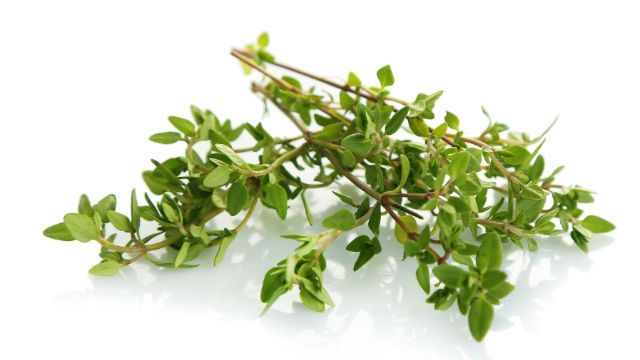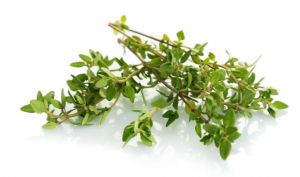
Thyme is an herb that’s commonly used for cooking, but it also offers a multitude of health benefits. You’re probably familiar with this perennial shrub with a thin woody base and square stems. It features tiny, light-green colored, slightly curved aromatic leaves as well as small and fragrant white or lilac hued flowers which appear in the summer.
The flowers, leaves and oil of thyme are commonly used as a remedy for treating a variety of conditions, including diarrhea, arthritis, colic, sore throat, cough and bronchitis.
Thyme can be used in a number of ways, imparting an intense flavor to recipes, typically added as the last step in order to keep its flavor and fragrance intact as prolonged cooking results in the evaporation of its essential oils. It can also be used as a tea, by pouring boiling water over the thyme leaves directly, or by placing the dried leaves into a tea ball.
There are many reasons to consume more thyme, including these.
Reduce high blood pressure
According to researchers at the University of Belgrade in Serbia, consuming thyme may help to protect against hypertension. The reasoning behind this may be because the leaves are one of the richest sources of potassium, which is an important component of cell and body fluids that help control heart rate and blood pressure.
Cancer protection
Thyme may also help protect against colon and breast cancer. A research team from Universidade Nova de Lisboa in Portugal found that the presence of the extracts of Mastic Thyne produces a protective effect. Scientists at Celal Bayar University in Turkey conducted a study which determined that the herb may also be a promising candidate in the development of novel therapeutic drugs for breast cancer treatment.
Powerful antioxidants
Fresh thyme offers one of the highest antioxidant levels among herbs, including many flavonoid phenolic antioxidants like zeaxanthin, lutein, pigenin, naringenin, luteolin and thymonin. Antioxidants like these can help prevent the damaging effects of oxidation on cells throughout your body.
Relieving stress
Thyme is packed with vitamin B6, providing about 27 percent of the recommended daily intake. This vitamin helps maintain GABA (a beneficial neurotransmitter in the brain) levels which in turn helps to relieve stress.
Fighting infection
In addition to lots of antioxidants, thyme is a rich source of vitamin C which helps the body develop resistance to infectious agents as well as damaging, pro-inflammatory free radicals.
Fighting colds
 Thyme contains antiseptic and antibiotic properties that make it a great remedy when you have a cold, cough or sore throat. It is even effective as a treatment for bronchitis. Drinking a cup of thyme tea with a teaspoon of raw, organic honey is a great way to relieve the symptoms of these ailments.
Thyme contains antiseptic and antibiotic properties that make it a great remedy when you have a cold, cough or sore throat. It is even effective as a treatment for bronchitis. Drinking a cup of thyme tea with a teaspoon of raw, organic honey is a great way to relieve the symptoms of these ailments.
A wide range of other essential nutrients
In addition to being an excellent source of vitamin A, vitamin B6 and vitamin C, thyme is rich in iron, manganese, copper and dietary fiber.
The next time you visit the grocery store, be sure to pick up some organic thyme and use it on a regular basis.
-The Alternative Daily
Sources:
http://link.springer.com/article/10.1007/s11130-013-0368-7
http://www.ncbi.nlm.nih.gov/pubmed/23285814
http://www.tandfonline.com/doi/full/10.1080/01635581.2012.719658#.UjEwirwuFRE
http://www.nutrition-and-you.com/thyme-herb.html
http://www.whfoods.com/genpage.php?tname=foodspice&dbid=77

